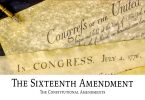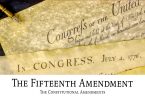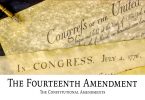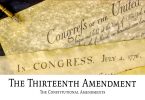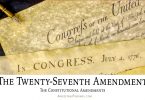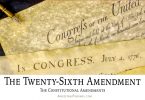The Constitution of the United States is often heralded as the bedrock of American society. Crafted carefully, it has served as the guiding framework for the nation since its ratification in 1789. But as we trace the course of American history, it becomes clear that the interpretation and application of this foundational document have shifted, leading some to wonder: when did we decide to rewrite the Constitution?
The truth is that the Constitution was never meant to be a static document. The Founding Fathers, in their wisdom, included mechanisms like amendments and judicial review to allow the Constitution to evolve alongside the nation. However, there’s a delicate balance between adaptation and rewriting history.
Throughout the centuries, the Constitution has been both a source of stability and a battleground for change. Consider the Reconstruction era following the Civil War. The Thirteenth, Fourteenth, and Fifteenth Amendments were added to abolish slavery, define citizenship, and protect voting rights. These amendments marked a significant shift in the nation’s legal landscape, expanding the Constitution’s promise of liberty and equality to all citizens. However, even these noble changes were resisted, and their interpretations have been contested ever since.
As we progress in history, we see similar debates during the Progressive Era, the New Deal, and the Civil Rights Movement. Each period brought new interpretations of the Constitution, reflecting American society’s evolving values and challenges. Yet, alongside these advancements, there have been moments where political agendas have sought to reinterpret the Constitution in ways that could be seen as straying from its original intent.
In recent years, the debate over the Constitution’s meaning has intensified. Judicial decisions and executive actions have sometimes taken bold steps that seem to push the boundaries of constitutional interpretation. For instance, the ongoing debates over the limits of executive power, the Second Amendment, and the role of religion in public life are all examples of how the Constitution is continuously being reexamined. While these debates are necessary for a living democracy, they also raise concerns about whether we are preserving the document’s integrity or slowly rewriting it.
This notion of rewriting history is not a new phenomenon. Throughout the political era of the United States, various leaders have attempted to reshape the narrative of the nation’s past, sometimes for ideological reasons, other times for political gain. Each generation leaves its mark on the Constitution, but at what point do these marks become more than just interpretation? When does it cross the line into rewriting history?
As genealogists, we understand the importance of preserving the past. We dig through records, uncover stories, and piece together the lives of those who came before us. In many ways, the Constitution is akin to the genealogy of the nation. It’s a document that tells the story of the United States, its values, and its struggles. Just as we seek to preserve the integrity of our ancestors’ stories, we must also strive to protect the integrity of our nation’s foundational documents.
The parallels between genealogy and constitutional preservation are striking. Both require a commitment to accuracy, context, and an understanding of how the past shapes the present. In genealogical research, we often encounter the temptation to rewrite family stories to fit a more palatable narrative. However, the true value of our work lies in uncovering the unvarnished truth, no matter how complex or uncomfortable it may be. Similarly, when it comes to the Constitution, it’s essential to approach it with the same respect and care, acknowledging its original context while thoughtfully considering its application today.
So, when did we decide to rewrite the Constitution? The answer may not lie in a specific moment or decision but rather in a gradual shift in how we approach the document. Each generation faces the challenge of interpreting the Constitution in light of contemporary issues, but this should not come at the expense of erasing the historical context that gives the document its meaning. It’s a reminder that, like our personal histories, the nation’s history should be preserved and respected, even as we navigate the present complexities.
As we continue to discuss the Constitution and its role in modern America, it’s crucial to remember that our actions today will shape the legacy we leave for future generations. Just as we cherish the stories of our ancestors, we must also be vigilant in safeguarding the story of our nation, ensuring that the Constitution reflects the values and principles that have guided the United States since its founding.
Read More:

